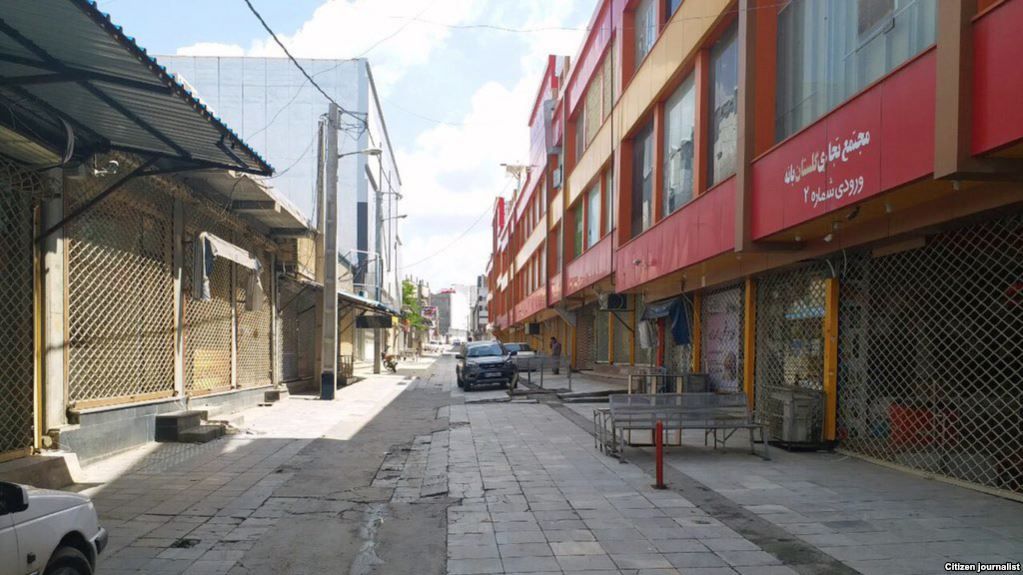Iranian Merchants Close Down Shops in Silent Strike against Hyperinflation اعتصاب بخشهایی از بازار شهرهای ایران در اعتراض به گرانی و رکود

OCTOBER 10, 2018
Merchants
and business owners went on strike in several Iranian cities on October 8,
2018, to protest against hyperinflation and economic instability.
Images and video footage posted on social media
networks showed many shops closed that day in the cities of Tehran, Tabriz,
Mashhad, Isfahan, Kermanshah, Sanandaj and Orumiyeh.
But
Iran’s state television reported on October 8 that businesses were open to the public at
the Grand Bazaar in Tehran.
“Even
though it was said that the bazaar would be on strike today, the level of
activities was the same as any other day and the merchants are busy as usual,”
said a reporter for the state-run Islamic Republic of Iran Broadcasting
(IRIB). “More and more customers are pouring into the Grand Bazaar, which
indicates brisk business.”
After
the US pulled out of the Iranian nuclear deal in May 2018, the threat of
renewed US sanctions caused Iran’s domestic currency, the rial, to spiral
downwards while the prices of goods and services rose sharply.
Low-income
families and those supporting loved ones with disabilities have been hit hard
by the hyperinflation. For example, people requiring adult diapers and catheters have been unable to
obtain them at affordable prices.
Iranian
officials have responded to the strikes that have hit various industries and
sectors throughout the country since the beginning of 2018 by claiming they’ve
been manufactured by foreign agents or by downplaying the number of people who
have attended the protests.
After
merchants in Tehran joined a similar strike in late June 2018,
Judiciary
Chief Sadegh Larijani threatened the protesters with
execution.
“I’m
warning you, listen well. Take the cotton out of your ears and open your eyes.
These actions against the country’s economic order are punishable by
execution—if found to be on the level of ‘corruption on earth”—or up to 20
years in prison and the confiscation of all possessions,” said Larijani on June 26.
Earlier
this month three people were sentenced to death and 32 others to long prison
terms for allegedly hoarding foreign currencies and reselling them at
exorbitant prices.
A
source in Kurdistan Province told the Center for Human Rights in Iran (CHRI)
that most shopkeepers stayed home on October 8 in the provincial capital of
Sanandaj and other cities such as Marivan and Saqqez.
No comments:
Post a Comment